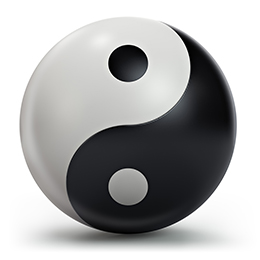Acupuncture for Insomnia
The rigors of modern life, coupled with various stressors, have made insomnia a common complaint among many individuals. With the increasing desire to opt for holistic and natural treatments, acupuncture has emerged as a popular choice for those seeking relief from sleep disturbances. At our clinic in Aventura, we have helped countless patients restore their ability to get a good night’s sleep and we are confident that we can help you too! Let’s delve into how acupuncture for insomnia can be beneficial for you…
What is Acupuncture? Acupuncture is a holistic medicine technique that involves inserting super thin, sterile needles into specific points on the body. These points are believed to be connected to pathways, known as ‘meridians’, which carry vital energy or ‘Qi’. By targeting these specific points, acupuncture seeks to balance the flow of Qi and promote the body’s innate ability to heal itself.
Acupuncture for Insomnia
Insomnia can manifest in various forms – difficulty falling asleep, waking up frequently during the night, or waking up too early in the morning. Acupuncture’s approach to treating insomnia is holistic, addressing both the symptoms and the underlying imbalances causing them. Here’s how acupuncture can help:
- Stimulating the Production of Neurotransmitters: Acupuncture can stimulate the production of neurotransmitters like melatonin, which regulates the sleep-wake cycle.
- Reducing Stress and Anxiety: Acupuncture has been shown to lower cortisol levels, the body’s primary stress hormone, helping individuals relax and sleep better.
- Restoring Energy Flow: By targeting specific points associated with sleep, acupuncture ensures a smooth flow of energy, alleviating disturbances like restless leg syndrome or frequent awakenings.
Research on Acupuncture for Insomnia
Several studies have illuminated the benefits of acupuncture for insomnia:
- A study published in the Journal of Alternative and Complementary Medicine found that participants who underwent acupuncture showed significant improvements in sleep duration, sleep efficiency, and the time taken to fall asleep.
- A study published in The Journal of Neuropsychiatry and Clinical Neurosciences focused on the potential mechanisms by which acupuncture might affect sleep. The research found that after acupuncture treatment, patients with anxiety (a common contributor to insomnia) experienced a significant increase in their endogenous melatonin secretion, leading to improvements in both the amount and quality of sleep. Melatonin is a crucial hormone for regulating the sleep-wake cycle. The study also reported a significant reduction in anxiety levels among the treated patients.
- Another review of over 30 trials published in The International Journal of Clinical Acupuncture suggested that acupuncture might have a beneficial effect on insomnia compared to no treatment. Furthermore, its efficacy was comparable to sleep medications but with fewer side effects. A majority of the studies reviewed (around 75%) showed a positive outcome favoring acupuncture. This consistency strengthens the claim of acupuncture’s potential benefits in treating insomnia.
In Conclusion
Acupuncture offers a natural and holistic approach to address insomnia. By targeting the root causes and working to balance the body’s energy systems, acupuncture can pave the way for more restful and rejuvenating sleep. If you’re struggling with sleep disturbances, considering the ancient wisdom of acupuncture might be a step in the right direction towards achieving optimal wellness. Give us a call today at 786-537-7022 to get started!





